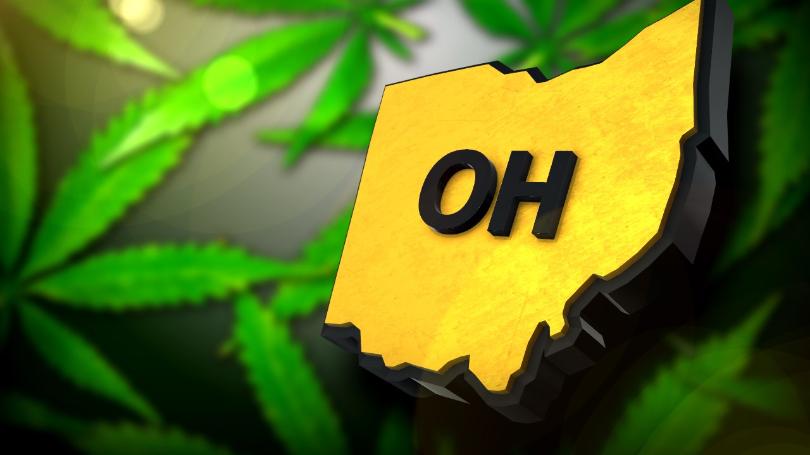Week in Review
Ohio’s Medical Marijuana Initiative

Ohio is ready to begin its Medical Marijuana initiative. They will stop accepting applications for its first crop of medical marijuana dispensary licenses and issue their 1st 60 licenses. The National Cannabis Industry Association’s recently formed Ohio chapter will help guide dispensaries through what is expected to be a $300-400 million-per-year industry.
But before they can rake in the green, would-be weed-dispensers must clear some major hurdles including bureaucratic and financial requirements, logistical challenges, and legal risks. The application process is very thorough. Ohio was the 26th state to legalize medical marijuana. It is currently legal in 29 states, the District of Columbia, Guam and Puerto Rico, according to the National Conference of State Legislature. A law approved by Ohio lawmakers last year says the state’s new medical marijuana industry has to be fully operational by September 2018. It’s just a matter of time before medical marijuana is legalized nationwide. We are at a tipping point.
Child Dies of Possible Marijuana Overdose

In Denver Colorado two poison control doctors claim to have documented the first known case of death by marijuana overdose, sparking a medical debate over what killed an 11-month-old baby in Colorado two years ago.
The doctors behind the case report, Doctors Thomas Nappe and Christopher Hoyte, worked on the baby’s care as part of their duties at the regional poison control center. They claim that damage to the child’s heart muscle, which was listed as the boy’s cause of death, was brought on by ingesting marijuana. According to the doctors the only thing that was in a high concentration was marijuana. According to published reports the child never really got better and subsequently he died of heart problems. If correct this phenomenon would be the 1st time that anyone has ever died from a marijuana overdose. Stay tuned.
Michigan is ready to put Pot Legalization to a vote in 2018

In Michigan it takes 252,523 valid signatures to place a ballot initiative on the ballot. The Committee to Regulate Marijuana Like Alcohol announced this week that it’s gathered over 360,000 signatures on their initiative to legalize marijuana for everyone 21 and older.
The proposed initiative would legalize the possession, cultivation and use of marijuana for those 21 and older, while establishing a system of licensed marijuana retail outlets. Cannabis would be taxed with a 10% excise tax and a 6% sales tax, with funding going towards schools, local governments and road repairs.
If the initiative is placed on the ballot (which will come after the state verifies the signatures) and is passed by voters, Michigan would become the 9th state to legalize marijuana for personal use.
The Committee to Regulate Marijuana Like Alcohol is a partnership between the Marijuana Policy Project, the ACLU of Michigan, the Drug Policy Alliance, the National Patients Rights Association, Michigan NORML, MI Legalize, the Michigan Cannabis Coalition, and lawyers from the State Bar of Michigan Marijuana Law Section.
Canada will legalize marijuana in 2018

Recreational marijuana is on track to be legalized in Canada by July 2018, making Canada the first Group of Seven countries to allow the drug nationwide and the second in the world after Uruguay. The government of Prime Minister Justin Trudeau will regulate cannabis production but the devil in the details will be up to the provinces.
While the federal legislation proposed by Prime Minister Justin Trudeau’s Liberal government will regulate cannabis production, the details of who can sell it and who can buy it will be largely left up to the country’s provinces. The federal government set the minimum legal age for buying marijuana at 18, but the provinces can raise that if they wish. In Ontario, Canada’s most populous province, the legal age will be 19. The federal government’s proposed law also permits adults to grow up to four marijuana plants at home, although Quebec announced Thursday it will not allow residents of the province to grow their own marijuana.
So far, five of Canada’s 10 provinces have come forward with frameworks for retail marijuana sale. In Ontario, Quebec and New Brunswick, cannabis sales will be run by provincial government-owned entities. The western provinces of Manitoba and Alberta have said they will license private retailers. As far as enforcement Federal and provincial governments are tightening the rules around impaired driving and bringing in a roadside saliva test to check for drug impairment.The federal government is also setting up systems to track all cannabis from seed to sale, to license non-medical producers and to test marijuana for potency and quality control. The federal government has already issued more than 70 licenses for producing medical marijuana, which has been legal in Canada since 2001.
